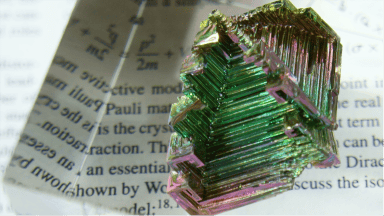Physicsworld
1M
54

Image Credit: Physicsworld
Has bismuth been masquerading as a topological material?
- Bismuth has puzzled scientists for nearly 20 years, with conflicting answers on its topological nature from theorists and experimentalists.
- Researchers in Japan suggest that surface relaxation in bismuth may have masked its true topological properties.
- Topology in materials can affect their conductivity, and topological insulators have potential for applications in quantum computing and more.
- Detecting surface states in materials like bismuth can provide insight into their bulk properties.
- Studies on bismuth revealed lattice expansion near the topological transition point, affecting its surface wavefunction.
- This 'topological blocking' phenomenon in bismuth may explain conflicting experimental results on its topological nature.
- Researchers are now exploring how lattice relaxation impacts material properties and potential for topological engineering.
- The study also paves the way for designing topological materials by manipulating strain, bonding coordination, and substrate interface.
- The research findings have implications for better understanding topological materials and conducting consistent experiments.
- The study was published in Physical Review B, shedding light on bismuth's enigmatic behavior in the realm of topological materials.
Read Full Article
3 Likes
For uninterrupted reading, download the app